Search Images
Browse Content (p. 353)
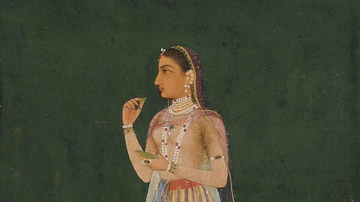
Image
Jahanara Begum
A 1632 portrait of Jahanara Begum (1614-81), daughter of Queen Mumtaz Mahal (1593-1631) and Shah Jahan (r. 1628-1658), emperor of the Mughal Empire. (British Library, London)

Image
Mumtaz Mahal
A 19th-century illustration showing a seated Queen Mumtaz Mahal (1593-1631), wife of Shah Jahan (r. 1628-1658), emperor of the Mughal Empire. Shah Jahan famously built the Taj Mahal for Mumtaz Mahal.
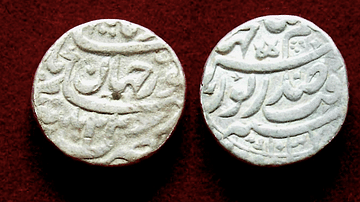
Image
Mughal Coin of Nur Jahan
Silver Mughal coin bearing the name of Queen Nur Jahan (c. 1577-1645), wife of the Mughal Emperor Jahangir (r. 1605-1627).
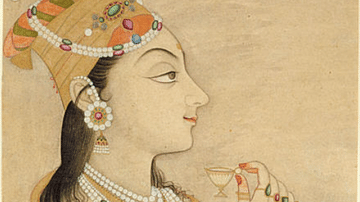
Image
Portrait of Nur Jahan
A c. 1725 idealised portrait of Queen Nur Jahan (c. 1577-1645), wife of the Mughal Emperor Jahangir (r. 1605-1627). (Los Angeles County Museum of Art)
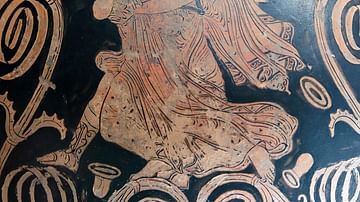
Image
Boreas & Oreithyia
Rape of Oreithyia by Boreas. Detail from an Apulian red-figure oenochoe, ca. 360 BCE.
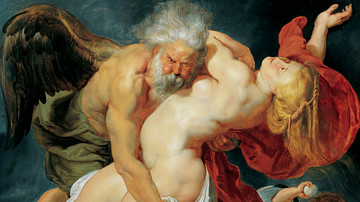
Image
The Rape of Orithyia by Boreas by Peter Paul Rubens
The Rape of Orithyia by Boreas (1620) by Peter Paul Rubens.
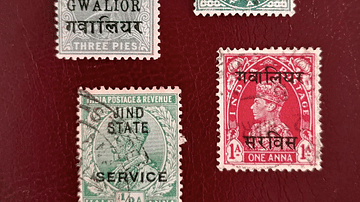
Image
Indian Princely States Postage Stamps
Four examples of British India postage stamps issued with overprints for use in particular Indian princely states. Top left: Queen Victoria, Gwalior, 1904 Top right: Queen Victoria, Patiala, 1895 Bottom left: King George V, Jind State...
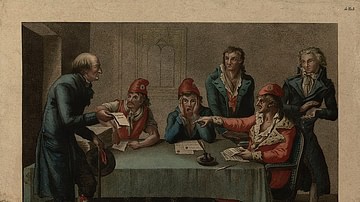
Image
Committee of Surveillance during the French Revolution
Committee of Surveillance, tasked with unmasking and arresting local "suspects" during the Reign of Terror. Engraving by Jean-Baptiste Huet, c. 1793-94.
Bibliothèque nationale de France, Paris.
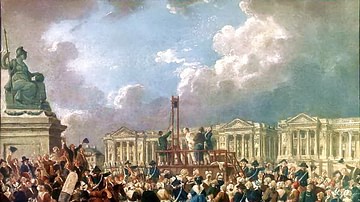
Image
Execution by Guillotine in the Place de la Revolution
Execution by guillotine in the Place de la Revolution (modern-day Place de la Condorde) in Paris, during the Reign of Terror. By Pierre-Antoine Demachy c. 1807.

Image
Trial of Danton, Desmoulins & Their Allies
Trial of Georges Danton, Camille Desmoulins, and their allies before the Revolutionary Tribunal during the Reign of Terror. By Jean Mathias Fontaine, 1834.
Musée Carnavalet, Paris.